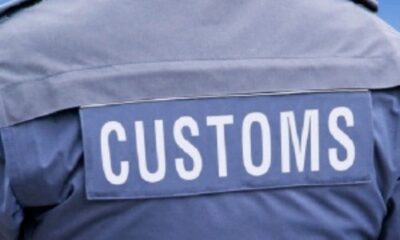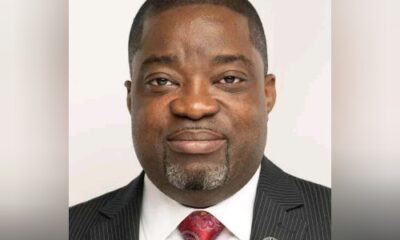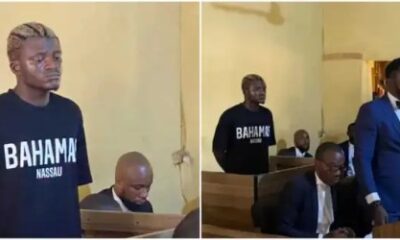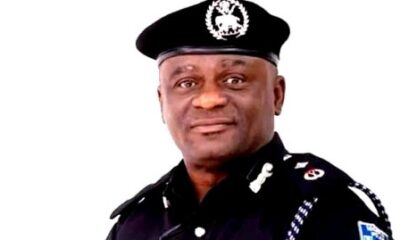
The Inspector-General of Police (IGP), Solomon Arase, will on June 21, retire from office as the number one man of the Nigerian Police Force.
Arase, who has become the toast of many eversince his appointment as the Police IG a year ago, is the 18th and current Inspector-General of Police.
It would be recalled that Arase took over as new Acting Inspector General of Police soon after the dismissal of former IGP, Suleiman Abba, in controversial circumstances in April 2015.
Until his appointment, Arase served as the Head of the Force Criminal Intelligence and Investigation Department – the apex intelligence gathering arm of the Nigerian police, the Force CID is the only arm of the police that provides Intelligence on Crime and National Security.
Arase, 59, was born on June 21, 1956. He hails from Oredo Local Government Area of Edo state. He enlisted into the Nigerian Police on December 1, 1981 after graduating from the Ahmadu Bello University, Zaria, in 1980, with a degree in Political Science.
He also has a Bachelor of Law degree and Masters of Law from the University of Benin and University of Lagos respectively. He attended the Nigerian Law school and was called to the bar in 2000. Arase also has a Master’s Degree in Strategic Studies from the University of Ibadan.
He has served in various commands and formations of the Nigerian Police Force (NPF), including being the Commissioner of Police for Akwa Ibom State. He was also an Assistant Inspector General of Police in charge of the Force Criminal Investigation Bureau. He served at the United Nations Mission in Namibia and is a Fellow of the Nigerian Defence College.
Arase will be retiring a little over a year after becoming Nigeria’s police chief. It would be recalled that he was appointed by former President Goodluck Jonathan in April 2015 and will attain the mandatory retirement age of 60 on June 21, 2016, after serving for 35 years
There are strong indications however, that two senior police officers from the North-Central and South-East geo-political zones are being considered for the post of the Inspector General of Police (IGP), which will become vacant in June at Arase’s retirement from the force.
The Capital findings revealed that the position of the nation’s top police officer has been zoned to the two regions, given that none of the zones is currently represented in the appointment of the nation’s security chiefs.
The distribution of all the service and security chiefs shows that while the North-East has the Chief of Army Staff and Chief of Air Staff, the North-West has the DG DSS, the South-West has Chief of Defence Staff and the South-South has Chief of Naval Staff and police IG, while the South-East and North-Central have none.
Presently, only the South-East and the North-Central have no representation in the headship of security agencies, whereas the North-East has the Chief of Army Staff, Lt Gen Tukur Yusuf Buratai (Borno State) and Chief of Air Staff, Sadique ( Bauchi State). The North-West has the DG DSS, Lawal Daura (Katsina State); the South-West has the Chief of Defence Staff, General Abayomi Gabriel Olonishakin (Ekiti State) while the South-South has the Chief of Naval Staff, Rear Admiral Ibok-Ete Ekwe Ibas (Cross River State)and the Police IG, Solomon Arase from Edo State, leaving out the North-Central and the South-East.
For a long time in the police force, seniority had not been the determinant for choosing an IG, except during the appointment of former IGP Ogbonna Onovo and Arase. To correct the imbalance, President Buhari may re-establish the rule of seniority within the force and pick either DIG Dan’Azumi Job Doma from the North-Central or DIG Chintua Amajor-Onu from Abia State in the South-East, as a possible replacement of Arase. Doma is in charge of the Admin and Finance at the Force Headquarters, while Chintua heads the department of Information and Communication Technology, also at the headquarters.
The outgoing IGP was retained contrary to speculations that President Buhari would sack him alongside other service chiefs after taking over from Jonathan in May, 2015. However, President Buhari sacked the security chiefs in July 2015, the police boss was spared due to what was believed to be his outstanding track record of performance.


 BIG STORY4 days ago
BIG STORY4 days ago
 BIG STORY2 days ago
BIG STORY2 days ago
 BIG STORY2 days ago
BIG STORY2 days ago
 BIG STORY4 days ago
BIG STORY4 days ago
 BIG STORY3 days ago
BIG STORY3 days ago
 BIG STORY2 days ago
BIG STORY2 days ago
 BIG STORY20 hours ago
BIG STORY20 hours ago
 BIG STORY3 days ago
BIG STORY3 days ago




































